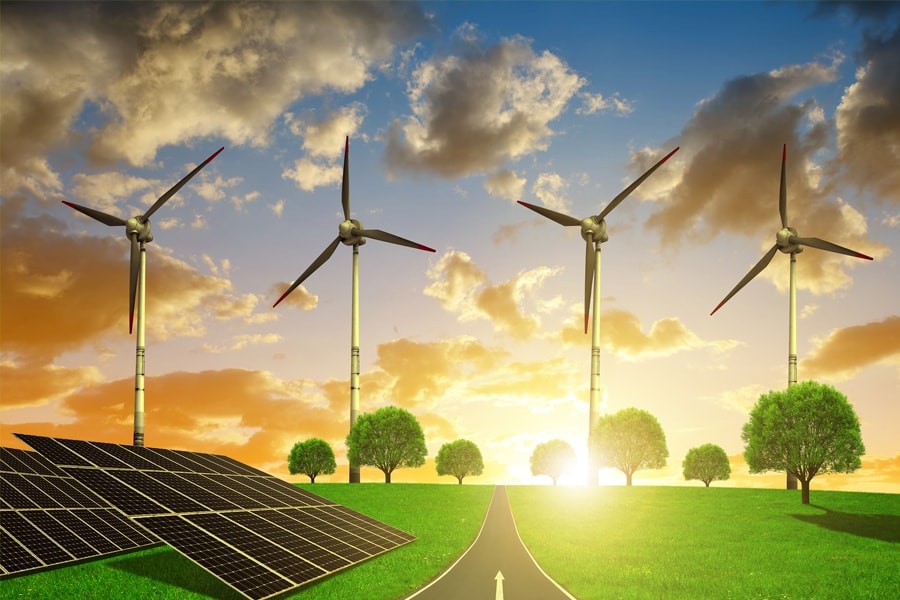Alternative Energy: A Sustainable Solution for the Future

What is Alternative Energy?
Alternative energy refers to any source of energy that is not derived from fossil fuels. These sources include solar energy, wind energy, hydropower, geothermal energy, and biomass energy. Alternative energy sources are renewable, meaning they are replenished naturally and can be used indefinitely. Unlike fossil fuels, which are finite, alternative energy sources do not produce harmful emissions and do not contribute to climate change.
Solar Energy
Solar energy is one of the most abundant sources of renewable energy. It involves the conversion of sunlight into electricity using photovoltaic cells. Solar energy systems can be installed on rooftops or in large solar farms. Solar energy is an excellent alternative to traditional fossil fuels because it is clean and sustainable.
Wind Energy
Wind energy is another renewable source of energy that is rapidly gaining popularity. It involves the use of wind turbines to generate electricity. Wind turbines capture the kinetic energy of the wind and convert it into electrical energy. Wind energy is a clean and sustainable alternative to fossil fuels, and it has minimal impact on the environment.
Hydropower
Hydropower is the use of water to generate electricity. It involves the construction of dams or other structures that harness the power of water to turn turbines. Hydropower is a reliable and sustainable source of energy that produces no emissions. However, the construction of dams can have negative impacts on the environment and disrupt ecosystems.
Geothermal Energy
Geothermal energy is the heat that is generated from the earth's core. It involves the use of geothermal power plants to generate electricity. Geothermal energy is a sustainable and reliable source of energy that produces no emissions. However, the availability of geothermal energy is limited to certain regions.
Biomass Energy
Biomass energy is derived from organic matter, such as wood or agricultural waste. It involves the combustion of biomass to generate electricity. Biomass energy can be an excellent alternative to fossil fuels, but it has some drawbacks. The production of biomass can be energy-intensive, and the combustion of biomass can produce harmful emissions.
The Pros and Cons of Alternative Energy
Pros:
- Renewable and sustainable
- Reduce reliance on fossil fuels
- Produce little to no emissions
- Minimal impact on the environment
- Can be used in remote areas
Cons:
- High initial investment costs
- Intermittent energy production
- Dependent on weather and climate conditions
- Some alternative energy sources have limited availability
- May require extensive land use
Conclusion
Alternative energy is a sustainable solution that can help reduce our reliance on fossil fuels and minimize the impact on the environment. While there are some drawbacks, the benefits of alternative energy far outweigh the costs. As such, it is essential that we continue to invest in and develop alternative energy technologies to ensure a sustainable future for generations to come.
FAQs
Q: How much does it cost to install solar panels?
A: The cost of solar panels varies depending on the size of the system and the location. However, the cost has decreased significantly in recent years, and there are government incentives and rebates available to help offset the cost.
Q: How much energy can wind turbines generate?
A: The amount of energy that a wind turbine can generate depends on the size and location of the turbine. However, modern wind turbines can generate anywhere from 1.5 to 8 megawatts of electricity.
Q: Is hydropower renewable energy?
A: Yes, hydropower is a renewable source of energy because it uses the natural flow of water to generate electricity.
Q: What is the most significant advantage of alternative energy?
A: The most significant advantage of alternative energy is that it is sustainable and does not produce harmful emissions. This makes it a cleaner and more environmentally friendly alternative to traditional fossil fuels.
